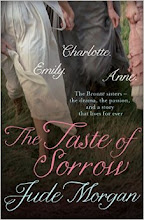This isn't my usual kind of book, and I have no idea why I chose it; I was just strangely drawn, I suppose. After all, I bought it from the Persephone shop, so it's not like I just fancied a Persephone and this is all my local Waterstones had... Anyway, buy it I did, and what a happy accident it was.
The Hopkins Manuscript is a 1930s Sci-Fi novel, and tells of an impact between our Earth and its moon. It is, however, so refreshingly different in style to the fast-paced, action-packed, thriller-esque Science Fiction we are offered by today's cinematic experience as to belong to a different genre almost entirely; our hero, for it is written in first person, is an unlikeable middle aged rural chicken breeder, pompous, self-important, and rude. One of the small percentage of people to survive the collision, he sets about the day to day tasks of rebuilding 'normal life', but he and others are scuppered in their desire to simply continue a simple and peaceful existence by the larger machinations of warmongering government.
This book has haunted me since I read it. I cannot look at the moon anymore without thinking of The Hopkins Manuscript. The larger portion of the story is taken up with the build-up to the collision, with the moon's increasingly bulbous monthly appearance in the sky as it nears Earth described in such vivid terms that one does become surrounded by the creepy vacuous winds that accompany its approach, and one starts to see the otherworldly light in which Earth becomes bathed as its monstrous satellite begins to fill the night sky. There is a feeling of helplessness, of the natural horror of the impending destructive power of something so utterly beyond human power to halt.
Despite his selfishness and judgemental attitude, Hopkins becomes a trustworthy ally to us as readers, and dare I say it, we do, I think, warm to him. He is the right guide for a book which shows us the very smallness of our quotidian lives within the bigger picture; The Hopkins Manuscript is a 9/11 novel, in the sense that it makes you consider the life you will have lived in the event of a world-altering catastrophe. It is also, of course, a book still haunted by WW1 and living in the shadow of an approaching WW2 (it was written in 1939), and allegories are not hard to find. It is interesting that the final threat comes from the Islamic world, which adds a prescient nature to the novel, although better informed historians than I may well point instead to inevitability.
This is an alarming and powerful novel, both gentley prosaic and wildly terrifying, and I recommend it unreservedly even if you would never normally go near Science Fiction. It fits perfectly into the Persephone canon, and as both wonderful storytelling and historically significant document, is hard to beat.
Monday, 15 November 2010
The Hopkins Manuscript
Labels:
Persephone,
RC Sherriff,
Science Fiction,
The Hopkins Manuscript,
WWI,
WWII
Subscribe to:
Post Comments (Atom)


2 comments:
I've read my way through the Persephones and left this one til last as it just didn't appeal. VBut when I did finally read it, oh it was wonderful. What a gripping tale and as you say one that can be enjoyed even if you wouldn't touch science fiction with a bargepole.
This sounds amazing. I'm not sure we can get Persephone books here, but I'm damn well going to look around for it. Great review, by the way.
Post a Comment